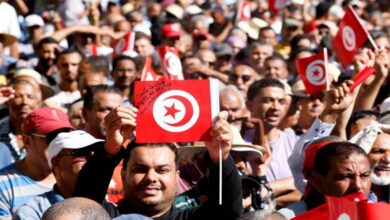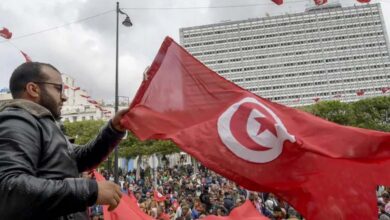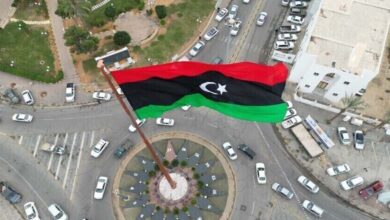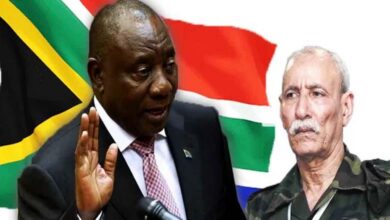Dbeibeh denies seeking to make changes in the composition of the Oil Corporation’s Management
The head of the National Unity Government, Abdul Hamid Dbeibeh, is engaged in conflicts with several national institutions as the pressure to remove him from the political scene intensifies.
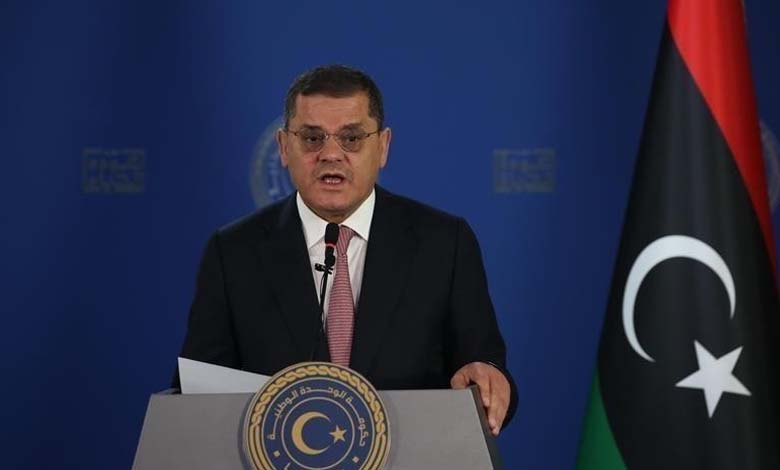
The Libyan National Unity Government, led by Abdul Hamid Dbeibeh, has denied accusations circulating in several reports regarding the reshuffling of the board of directors of the National Oil Corporation, amidst disputes between the government and various institutions in the country.
-
Demands for Formation of a New Government in Libya Pose Challenges for Dbeibeh
-
Dbeibeh sparks anger among Libyans with these statements
In a post on its official Facebook page, Dbeibeh‘s government stated that the circulated decision is “forged.”
Social media pages had published a decision purportedly issued by Dbeibeh on Wednesday, indicating the reshuffling of the board of directors of the National Oil Corporation under the chairmanship of Othman Al-Hadhiri.
The oil sector is vital in Libya, and full control over these resources allows for managing the political game in the country, something Dbeibeh is well aware of, as he has been accused of exploiting oil resources to gain the loyalty of militias in the western region.
-
Benghazi clashes… Accusations point towards Dbeibeh’s involvement in escalating the situation… Details
-
Dbeibeh Promotes Security Victories with Arrest of ISIS Leader
Many reports have highlighted corruption cases surrounding the oil sector, particularly within the National Oil Corporation, which has been confirmed by judicial authorities abroad, especially in Belgium and the United Kingdom.
The French site “Africa Intelligence” confirmed in a previous report that Abdul Hamid Dbeibeh was behind the dismissal of Oil Minister Mohamed Aoun to tighten his grip on oil wealth and its financial revenues.
The report shed light on the behind-the-scenes appointment of Ibrahim Dbeibeh to the Ministry of Oil in 2022, noting that the decision was part of an agreement to install Farhat Bengdara as the head of the National Oil Corporation, with the aim of dominating the sector.
-
The Dbeibeh government denies leasing the port of al-Khums to the Turkish army
-
Libya: Government of Dbeibeh Signs New Memoranda of Understanding with Turkey – Details
It also mentioned the recent tensions between Dbeibeh and Aoun, which have poisoned their relationship. The dismissed Oil Minister opposed signing a memorandum with Turkey in October 2022 for the exploration of hydrocarbons in Libyan waters, a move that angered Dbeibeh.
Oil has long been used as a tool in conflicts through the forced closure of oil fields, while observers of Libyan affairs have criticized the corruption in the sector and the profiteering of militias in the western region from the revenues, as the situation for Libyans continues to deteriorate.
Libya produces one million barrels of crude oil per day, but its oil institutions have faced several breaches in recent years, leading to temporary production stoppages and the declaration of force majeure by the National Oil Corporation.
-
Haftar grants Dbeibeh a deadline for the fair distribution of oil revenues and threatens war
-
Dbeibeh government launches new airstrikes on areas in western Libya… Details
Dbeibeh is not in conflict with the current administration of the National Oil Corporation but with other national institutions, such as the Central Bank, where the relationship between the bank’s governor, Sadiq Al-Kabir, and the head of the National Unity Government has been marked by numerous tensions.
These developments come amid internal and external pressures on Dbeibeh, accusations of public fund mismanagement, and efforts from the East to form a government that would remove him from power—efforts supported by Western forces that want a unity government to create a conducive environment for elections.
-
Ongoing crises – The Libyan scene is heading towards further complexity between Dbeibeh and Bashagha
Libyan parliament members unanimously voted during their plenary session this week to end the mandate of the executive authority that came in the preliminary phase, referring to the Presidential Council and Dbeibeh‘s government, whose assigned period has exceeded 18 months, declaring Osama Hamad’s government as the legitimate one.
The decision, rejected by the National Unity Government, has raised fears of a return to violence and conflict in the country.






